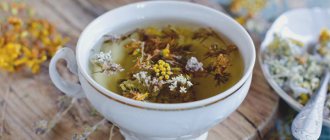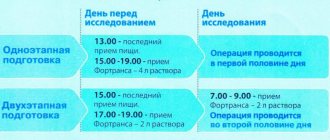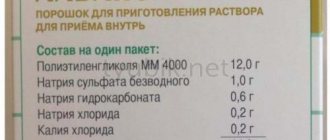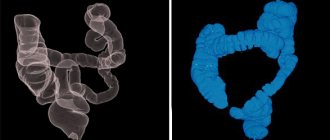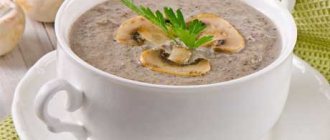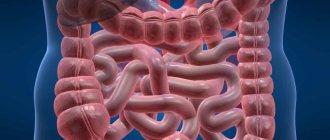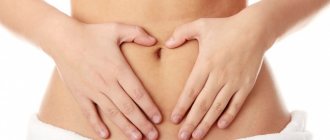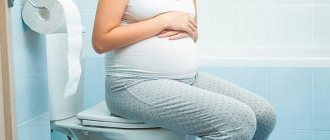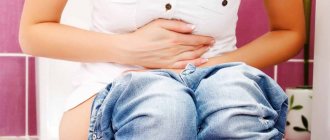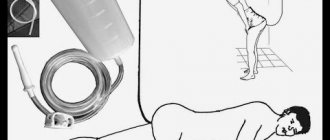To reduce pain, colonoscopy is often performed under general anesthesia or sedation. To prepare for the study, be sure to use a special slag-free diet, additional medication or enema cleansing of the intestines. However, even after a colonoscopy, especially after using anesthesia, it is important to follow a number of rules that will help the intestines to recover properly.
The importance of diet after colonoscopy
Before conducting an examination of the intestines, as is known, doctors already prescribe a strict diet. This diet is aimed at completely cleansing the intestinal walls and removing toxins.
In addition to the fact that after this diet, eating everything at once is harmful to the body, there are other important points why it is not recommended to eat all foods.
Complications after colonoscopy are possible in rare cases. However, in order to avoid various problems, it is important to follow the doctor's advice.
The procedure involves the introduction of a foreign body into the intestines, which can disrupt the microflora or lead to minor injuries to the mucous membrane. Therefore, food after the examination should not be rough or difficult to digest, and it must also help normalize the internal environment of the intestines.
It is strictly forbidden to consume fried and spicy foods; alcoholic drinks will also be inappropriate.
The load on housing and communal services should be reduced as much as possible immediately after a colonoscopy, and then you can gradually move on to your usual diet.
Prohibited Products
Eating meat products before a colonoscopy is prohibited.
Before the examination, it is not recommended to use products that cause gas formation, contain a lot of fiber and cause fermentation.
Products from the following food categories are not recommended:
- Dairy products with added seeds, muesli, pieces of fruit, nuts, berries, whole milk.
- Bakery products, cereals: whole grain bread, baked goods with the addition of seeds, raisins, muesli, nuts, bran, rye bread.
- Meat products: fatty varieties with cartilage, smoked meats, sausages.
- Fruits: compotes and fresh fruits with seeds, peels, having pulp with partitions (citrus fruits, oranges, pears, apples), dried fruits.
- Vegetables: all types of cabbage, legumes, onions, potatoes (especially in their jackets).
- Refractory fats (pork and lamb).
- Carbonated drinks, fruit and vegetable juices with pulp.
- Coconut flakes, popcorn.
- Pickles, canned foods.
- All types of seeds, nuts, oils with fillers made from them.
- The use of alcohol and coffee is strictly prohibited.
Diet goals
Before a colonoscopy, the patient must adhere to a strict diet, which will clear the intestines of toxins. Also, during the event, damage to the intestinal walls cannot be ruled out, since a foreign object penetrates into it.
Against the background of such actions, the tissues of the colon weaken, which often leads to such consequences as:
- soreness;
- dizziness;
- increased gas formation;
- general weakness;
- decrease in pressure.
To avoid all possible complications, after a colonoscopy, the patient must adhere to a certain diet for several days. This will help restore the organ and ensure its normal functioning.
Basics of proper nutrition after the procedure
For proper and complete restoration of the intestines after an invasive examination, you must follow the advice of doctors and eat right. Foods that can be eaten after a colonoscopy and after how long are determined by the attending physician and nutritionist. Your doctor will tell you when you can return to your normal diet. The diet is developed based on the results of an examination or surgical intervention. It is required to follow basic nutritional rules after the procedure:
- Meals should be frequent and small. To restore the proper functioning of the digestive tract, it is necessary to develop it and monitor the movement of the food coma and intestinal motility. Usually the entire diet is divided into 5-7 doses with a break of 1.5-2 hours. Each serving is a total of 200-250 grams.
- Food should be easily digestible. Heavy foods are completely excluded from the diet for stable functioning of the intestinal tract and ease of evacuation.
- The diet should contain a large amount of vitamins and minerals. After the procedure of invasion of internal organs, the intestinal microflora is disrupted. For recovery, the supply of certain microelements is necessary for several days.
- Food should be liquid or easy to chew. Colonoscopy can be used for surgery. After surgery, the walls of the intestinal tract are weak and can be torn or injured by large and hard foods. Which, in turn, can lead to infection and internal bleeding.
- The food should be warm. The food temperature should not be lower than 15 degrees and not higher than 55-60 degrees. This temperature range promotes rapid healing and recovery. Exceeding the temperature threshold can lead to impaired peristalsis or burns of the area undergoing surgery.
- Mandatory intake of water 30-40 minutes before meals and 40-50 minutes after. You need to drink a glass of 200-250 ml. The water forms an accompanying bubble and further softens the food. This promotes the rapid passage of food coma through the gastrointestinal tract and allows you to get rid of constipation. This side effect often accompanies a colonoscopy procedure.
- Food should not be washed down with water immediately. Excessive amounts of water can block the secretion of gastric juices. Severe dilution of food and fullness of the stomach can lead to the formation of gases and severely stretch the intestinal walls. The presence of a large amount of water can cause suture rupture or disruption of the entire intestinal tract.
Authorized products
The patient's diet after the bowel examination procedure should consist of the right foods.
After diagnosis, light and nutritious foods and dishes are allowed:
- Soups. Light soups with a small amount of sea or river fish are allowed. Vitamins and phosphorus contained in fish bones and meat have a positive effect on peristalsis and healing.
- Vegetable broths. Boiled vegetables are a source of vitamins and essential microelements during the healing process and restoration of functions. They are easily digestible products and significantly reduce the likelihood of constipation.
- Eggs and protein foods. Protein is the main source of muscle tissue in the large and small intestines. The patient is recommended to eat soft-boiled eggs or an omelet cooked in a steam bath every day. Poached eggs are also allowed.
- Steamed fish dishes. Sea fish meat is useful and necessary for restoring microflora. Fish contains vitamins A, D, E, F and Omega 3 acids.
- Carbohydrate porridges. Oatmeal, rice, buckwheat, semolina allow you to develop the damaged part of the intestine and promote recovery after colonoscopy. Prepared exclusively with water. Milk should be excluded during the cooking process.
- Steamed vegetable stew. Significantly increases the range of vitamins obtained. Allows you to develop the stomach and intestines after the pre-procedure diet.
- Fermented milk products with low fat content. Ryazhenka, kefir, yogurt, low-fat cottage cheese provide the body with calcium and potassium for recovery. These products help strengthen the intestinal walls and restore microflora.
- Infusion or fresh juice of dried fruits. While retaining its beneficial qualities, fresh juice does not harm the intestines after a colonoscopy. You should drink after eating. Significantly increases the release of toxins from the body and prevents constipation.
- Infusions of forest berries. Abundantly replenish the lack of vitamins and microelements.
- Herbal tea, compote, jelly. By maintaining a temperature of +-60 degrees, these drinks will help restore peristalsis and intestinal muscle tissue.
- Marmalade, honey, marshmallows. Light, sweet foods help replenish the lack of fat tissue around the small and large intestine after an invasive test.
- Rye and grain bread. Must be either softened in water or chewed thoroughly before swallowing. Rich source of carbohydrates and healthy grains.
Prohibited Products
You should not add foods to your diet after intestinal colonoscopy that could harm it or cause complications.
After the procedure and until the intestinal tract is completely restored, the following foods and dishes are prohibited for consumption:
- Grilled meat. Tough and fibrous foods can harm the intestines during the recovery period.
- Fried fish. Any sharp object can cause harm and provoke an inflammatory process. It makes it difficult for food to move through the gastrointestinal tract and can lead to constipation or diarrhea.
- Pickles and marinades. The aggressive environment of pickles of any type is an irritant for the microflora disturbed by colonoscopy. May cause inflammation and acute infection. The intestines will take longer to recover when consumed.
- Smoked products and sausage. Heavy food. Cannot be completely softened mechanically. Gastric juice is secreted in large quantities. Moving through the intestines, such food acts as an irritant and can be dangerous for the patient.
- Canned foods. Heavy food takes a long time to digest. Provokes a large secretion of gastric juice. May cause an infection in the intestines.
- Whole grain porridge. Due to the presence of whole grains, it is not completely digested. May cause constipation and volvulus.
- Beans, corn, chickpeas, lentils. It is not digested and goes intact through the intestines. May cause harm to the damaged part of the gastrointestinal tract and cause general malaise.
- Confectionery and baked goods. The presence of large amounts of sugar and solid parts has a negative impact on the intestines and makes it difficult to recover after a colonoscopy.
- Pasta. They are made mainly from hard grains. Difficult to digest and can cause constipation.
- Onion, radish, garlic. Spicy and aggressive food. Negatively affects peristalsis and the mucous membrane of the large and small intestine. Complicates the evacuation process and complicates recovery.
- Mushrooms in any form. They are difficult to digest and have a fibrous structure. They negatively affect digestion and the movement of masses in the intestines.
- Alcohol. Prohibited during recovery processes in the intestines. Alcohol is a solvent; it destroys the gastrointestinal mucosa and can dramatically worsen the patient’s condition. There may be difficulty urinating.
- Fried egg. It has a large number of sharp and solid particles that are difficult to digest. May cause irritation, infection and constipation.
- Freshly ground coffee and products containing cocoa beans. Prohibited in any form during the recovery period. It is difficult to remove from the body and has a negative effect on the mucous membrane. May cause constipation or volvulus.
- Spicy and fatty dishes. During the recovery process, hard-to-digest foods can cause constipation or volvulus. It disrupts peristalsis and inhibits the mucous membrane.
Authorized Products
Taking into account the rules of food preparation - you need unfried, lightly salted, dietary lean dishes - during a slag-free diet before a colonoscopy, the following products are allowed:
- meat (lean beef, veal, rabbit);
- poultry fillet (turkey, chicken);
- lean fish (pike perch, pike, perch, hake, cod, pollock);
- vegetables, boiled or canned, peeled and seeded (potatoes, carrots, beets, canned tomatoes and eggplants);
- canned fruit (apricots or peaches);
- cereals cooked in water (buckwheat, white rice, semolina);
- fermented milk products (low-fat cottage cheese, low-fat kefir or yogurt, cheese);
- chicken eggs (omelet or soft-boiled);
- premium wheat pasta;
- white bread croutons;
- yeast-free cookies, lean crackers
- oils (butter, vegetable);
- honey;
- fruit or berry jelly;
- fruit juices, berry compotes or jelly;
- tea (green, black, hibiscus).
Complications after the procedure
Modern bowel screening is considered relatively safe, but problems do sometimes occur. Complications are usually minor, but require proper solutions.
Symptoms of violations may be as follows:
- bloating. After some time, the air that entered the intestines after the colonoscopy will come out, and the problem will resolve itself;
- feces with blood. May occur due to injury to the intestinal mucosa;
- lower abdominal pain. Usually occurs if intestinal polyps or inflamed areas were affected during the procedure;
- abdominal discomfort. A common situation that occurs due to intestinal irritation;
- constipation or too loose stools. The problem arises due to a violation of the microflora.
Self-medication in such cases is unacceptable. A doctor's help is necessary, especially if there is an additional increase in body temperature and other alarming symptoms.
Only a specialist will always take the right measures and prescribe proper nutrition to eliminate the unpleasant situation.
What symptoms should you keep under control?
After a colonoscopy, stool appears within 2-3 days, provided you follow the diet after the examination procedure and the doctor’s recommendations. If you do not consume enough fiber, the normalization of stool will be delayed, and you will not be able to go to the toilet for an additional 1-3 days.
What symptoms should the patient pay attention to after the procedure? If you are worried about pain, gases in the intestines, or a stomach ache, the reason is the air pumped into the intestines during manipulation, which is pumped back using a colonoscope after the examination is completed. For relief, you can take activated carbon at the rate of 1 tablet per 10 kg of weight. It is forbidden to take laxatives without the consent of a doctor.
Diarrhea usually occurs due to improper use of medications at the preparatory stage or due to a reaction of the nervous system. If diarrhea lasts less than 48 hours, no additional treatment is required. However, the doctor may prescribe medications: Smecta, Loperamide and Hilak Forte.
In case of prolonged diarrhea, if blood is found in the stool, you should immediately consult a doctor for additional advice to restore health.
After surgery on the intestines, performed simultaneously with a colonoscopy, you should pay attention to your health: the lower abdomen may hurt, bleeding during bowel movements. This may be a sign of complications and a reason to return to your doctor.
In addition to proper nutrition and increased attention to well-being, you need to monitor your lifestyle. If possible, eliminate bad habits, stop drinking alcohol, replace sports activities with a walk in the evening or light exercises, yoga. During the recovery period after a colonoscopy, you will need to avoid lifting heavy objects. If due to certain circumstances it is necessary to take medications, it is highly advisable to coordinate their use with your doctor. Upon completion of the recovery period, the patient can eat as before and lead a normal lifestyle.
Sample menu
While telling the patient how to eat properly, the specialist also draws up a sample menu for the week. The diet for 7 days is presented in the table below.
| Monday | Tuesday | Wednesday | Thursday | Friday | Saturday | Sunday | |
| Breakfast | Low fat cottage cheese | Buckwheat porridge, rosehip decoction | Oatmeal, natural juice | Zucchini casserole | Buckwheat, boiled turkey, green tea | Muesli | Cottage cheese |
| Snack | Boiled egg | Curd mass with the addition of dried apricots | Fish soufflé | Yogurt | Cottage cheese and fruits | Cheesecakes, tea | Boiled egg |
| Dinner | Fish broth, boiled chicken meat | Vegetable soup, rice porridge and cutlet cooked in a steam bath | Chicken broth, vegetable casserole, compote | Vegetable puree soup, steamed meatballs | Fish broth, beet salad, puree | Chicken broth, buckwheat porridge, boiled fish | Vegetable soup, pilaf with veal, berry juice |
| Afternoon snack | Yogurt | Dried fruits | Natural kefir | Apple baked in the oven | Skimmed milk | Yogurt | Ryazhenka |
| Dinner | Rice | Broccoli casserole, green tea | Omelet and fresh tomato | Curd soufflé | Vegetable casserole | Fish cutlet, zucchini puree | Vegetable casserole with meat |
Despite the fact that colonoscopy is a minimally invasive procedure, it requires compliance with certain recommendations not only before the procedure, but also after it. To avoid complications and normalize the functioning of the intestinal tract as quickly as possible, you should not neglect the nutritional advice given by your doctor.
SOURCES: https://hromosoma.com/kolonoskopija/pitanie-posle-kolonoskopii-kishechnika-26634/ https://onkologia.ru/diagnostika/prochie-metody-diagnostiki/pitanie-posle-kolonoskopii-kishechnika/ https:// vospaleniekishechnika.life/diagnostika/pitanie-posle-kolonoskopii-kishechnika.html
Recommended Products
Low-fat dairy products are allowed.
Although the diet before a colonoscopy is quite light, it can cause weakness in those who are accustomed to eating high-calorie foods and, due to the nature of their work, are forced to expend a lot of energy.
Used for food before examination:
- Dairy products: cheese, milk, yogurt, sour cream with a low fat content.
- Cereals: porridges and side dishes made from finely ground semolina and corn grits.
- Meat products: lean meat and fish (chicken breast, rabbit, veal, lamb), eggs.
- Fruit and vegetable juices without pulp.
- Oil and fat: olive, sunflower, butter, margarine, mayonnaise.
- Drinks: tea, cocoa, still mineral water.
- Sugar, honey, jelly, lemon juice.
